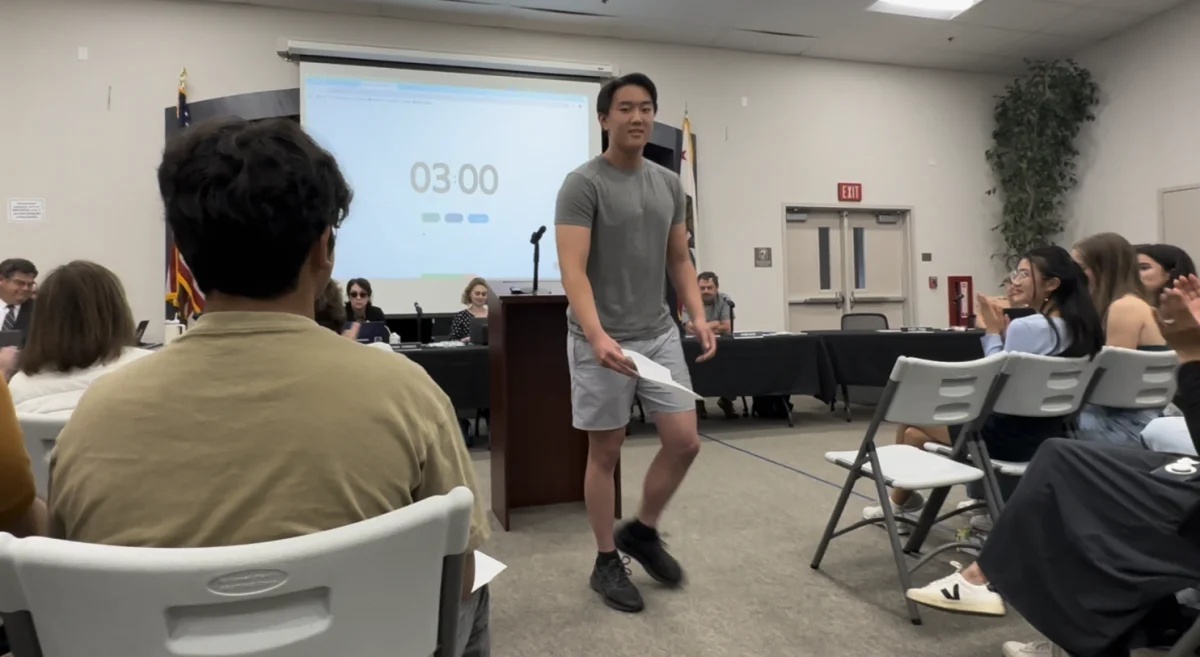Prop 19: No
Proposition 19 allows people 21 years or older to possess or transport up to one ounce or cultivate up to 25 square feet of marijuana for personal use. The proposition also allows the local government to authorize the sale of larger amounts of marijuana and collect taxes to offset any costs associated with marijuana regulation. However, marijuana is prohibited on school grounds, cannot be used in public and cannot be smoked in the presence of minors. Although Proposition 19 will yield several significant benefits, a few provisions must be made before the proposition is safe to be passed.
Under the current law, the possession, cultivation or distribution of marijuana is generally illegal. (The severity of the punishment depends on the offense.) Nevertheless, state and local governments spend millions of dollars annually incarcerating and supervising certain marijuana offenders. According to the Drug Policy Alliance, implementation of the proposition could allow police to focus on more violent crimes (which have been overlooked in the past as a result of the prevalence of illegal marijuana possession), help cut off funding to drug cartels, and generate $1.4 billion in revenue by allowing the government to tax the annual $14 billion in marijuana transactions in California.
Furthermore, outlawing marijuana hasn’t stopped over 98 million Americans from trying it. According to a survey conducted by the Office of National Drug Control Policy, 41 percent of Americans aged 12 and older have tried marijuana at least once in their lifetimes. Proposition 19 would actually increase the penalty of selling marijuana to minors.
But although the proposition has evident benefits, it is not complete. The proposition fails to provide standards for what can be deemed as “driving under the influence,” an issue that could seriously compromise safety on the road and in the community. People could technically use marijuana right up to the point when they begin driving. For example, school bus drivers would be prohibited from smoking marijuana on school grounds or while they were behind the wheel, but could drive with marijuana already in their system.
According to the National Institute on Drug Abuse, marijuana affects many skills required for safe driving such as alertness, concentration, coordination and reaction time. Studies show that up to 14 percent of drivers who died or sustained injuries in car accidents tested positive for THC.
California Vehicle Code 23152(a) VC criminalizes driving under the influence (DUI) of alcohol and/or drugs. However, proving that an individual is driving under the influence of marijuana is challenging, as the life span of THC ranges from hours to months, depending on the amount of marijuana consumed, the concentration of the THC, and the individual’s personal tolerance to marijuana. Chemical tests alone cannot determine when the marijuana was actually used, only that it was used at some point. Under the law, all that matters is whether an individual was DUI marijuana at the time he or she was driving. Additionally, California DUI marijuana law has no standard for prosecution, unlike the 0.04 percent blood alcohol content for alcohol impairment.
Despite the benefits of the measure, safety must come first. Before Proposition 19 is approved, further research must be conducted on how to test for DUI marijuana.
Prop 21: Yes
Proposition 21 establishes an $18 annual vehicle license surcharge to help fund state parks and wildlife programs. The proposition could be the answer to California’s dying state parks and beaches.
Over the last couple of years, state parks have accumulated a backlog of more than $1 billion in repairs and maintenance due to lack of funding. In the past year alone, 150 state parks were closed part-time or suffered service reductions. Public parks have been poorly maintained. The problem has grown to the extent that the National Trust for Historic Preservation has named California state parks one of the 11 most endangered sites in America.
California’s state parks and beaches are literally in danger of becoming extinct, threatening the wildlife habitats that exist in those areas. But Proposition 21 can save and protect state parks and wildlife programs. By implementing the vehicle surcharge, the state would be able to generate at least $250 million annually for state and wildlife conservation.
Not only will Proposition 21 protect the diversity of plants and animals in California, but preserving parks will contribute to public health because forests and natural areas are sources of clean air and water and can reduce greenhouse gases, combating climate change.
Opponents argue that the proposition is “a cynical ploy by Sacramento insiders to bring back the ‘Car Tax.’” However, Proposition 21 creates a new trust fund that requires funds to be used solely for the maintenance, operation and repair of state parks and the protection of wildlife and natural resources. The formation of the Citizens’ Oversight Committee and annual audits will mandate strict accountability, ensuring that funds are properly spent and not diverted to extraneous projects.
Furthermore, vehicles that pay the surcharge would be granted free parking and admission in all state parks (currently ranging from around $5 to $15 a day). The $18 annual vehicle license surcharge is a small price to pay to save California’s state parks and preserve its wildlife, not to mention set precedent for other states to follow as far as state parks are concerned.
Prop 23: No
Over the past several decades, global warming has become an increasingly important issue. According to “Sci-Tech Today,” the United States is the world’s second largest emitter of greenhouse gases in the world, and California is the second largest emitter of greenhouse gases in the country. Increasing concentrations of these greenhouse gases result in increasing global temperatures that could eventually cause significant problems such as rises in sea level and the number of extreme weather events. California must play its part in addressing the issue of global warming.
Proposition 23 suspends the implementation of the air pollution control law (Assembly Bill 32) for reducing greenhouse gas emissions until the employment rate drops to 5.5 percent or less for one year. State agencies cannot propose or adopt new regulations, or enforce previously adopted regulations, that would implement the bill during the suspension period.
In 2006, the state enacted the California Global Warming Solutions Act, commonly referred to as Assembly Bill 32 (AB 32). Under AB 32, the state would try to reduce emissions of greenhouse gases to 1990 levels by 2020. Achieving this target could mean a 30 percent reduction in greenhouse gases in 2020 from where the level would be in the absence of the bill.
However, under Proposition 23, AB 32 would be suspended immediately and the suspension would be sustained until employment dropped under 5.5 percent for a whole year. For the first 2 quarters of 2010, the unemployment rate was above 12 percent while economic forecasts for the next 5 years estimate the rate remaining above 8 percent. Given these numbers, AB 32 would most likely be suspended for many years.
Proposition 23 will temporarily prevent energy cost increases by putting off the implementation of new clean energy laws. Proponents of the proposition also argue that higher energy prices as a result of AB 32 will hurt California’s poor, working and middle class families who are dealing with lost jobs and fewer hours.
However, by keeping us dependent on fossil fuels, Proposition 23 would eventually increase household electricity costs in California by 33 percent. According to David Roland-Holst, the Agricultural and Resource Economics Professor at UC Berkeley, these added costs would reduce economic output in California by more than $80 billion and cost over 500,000 jobs by 2020.
Suspending AB 32 will allow air pollution to increase, resulting in a decline in clean energy companies which will have trouble competing with oil companies like Valero and Tesoro.
Large oil companies, among the worst polluters in California, are actively supporting Proposition 23 to escape accountability for gas emissions. If the proposition was implemented, portions of the health and safety code requiring the reduction of air pollution in California refineries would be repealed. This would contribute to more air pollution, leading to asthma and lung disease.
Implementation of clean air laws under AB 32 would contribute greatly to increasing respiratory health. Although the proposition may work for the time being, it is important that the long-term repercussions are considered.








